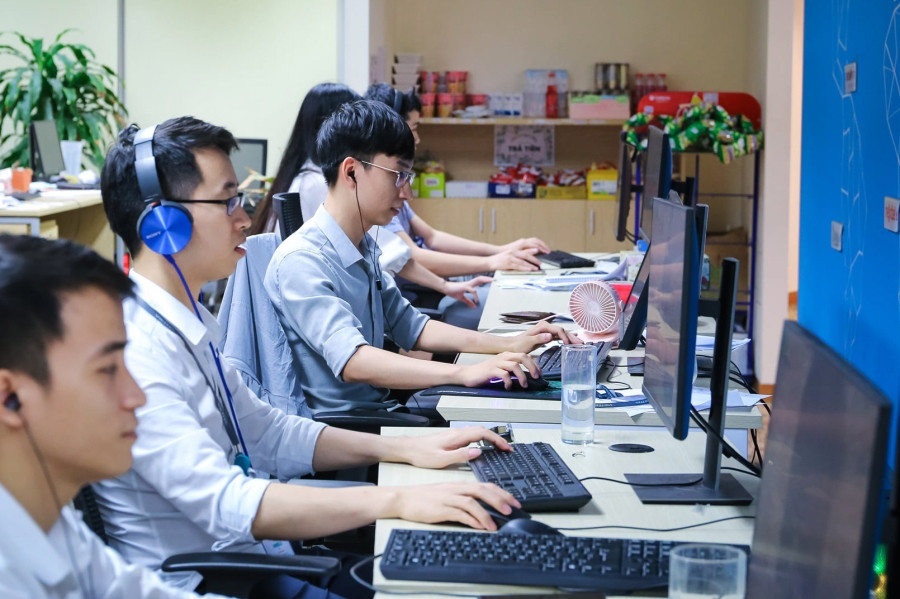Viettel Group has just been assigned to research and test the development of a Vietnamese language model and virtual assistant for officials and civil servants at the Ministry of Information and Communications.
Deputy Minister Nguyen Huy Dung has just signed a decision approving a research and testing unit to develop a large Vietnamese language model and virtual assistant for officials and civil servants at the Ministry of Information and Communications (MIC).
At the request of the Director of the National Digital Transformation Agency, the Military Industry-Telecoms Group (Viettel) was selected by the Ministry of Information and Communications as the research and testing unit to develop a large Vietnamese language model and virtual assistant for officials and civil servants.
The research and testing will be carried out in 2023. The selected unit will proactively arrange its human resources and resources during the research and testing process according to current regulations.

Viettel Cyberspace Center (Viettel Group) will directly participate in developing virtual assistants for officials and civil servants.
The goal of the research and testing is to create a basic version of a virtual assistant for state officials and civil servants and a virtual assistant application version for the Ministry of Information and Communications.
The Ministry of Information and Communications also hopes to build a common dataset in Vietnamese with good quality and wide coverage to serve the training of fluent communication skills for the Vietnamese language model.
The Vietnamese language modeling service platform will have basic components including tools for data collection, processing, and labeling, and application programming interfaces (APIs) for virtual assistant development.
After the research and testing process, the virtual assistant platform for officials and civil servants needs to meet basic requirements such as being able to be used on websites and mobile phones, supporting Vietnamese voice control interface, being easily integrated into websites, Zalo OA... other popular OTT application channels in Vietnam.
Virtual assistants need to be able to add their own, personalized data to the virtual assistant through the platform without the need for technical staff.
The virtual assistant platform for officials and civil servants is also required to have training data connections to the Government's large data portals: Administrative document data portal, public procurement data portal, citizen data portal, etc.
At the same time, this virtual assistant needs to have training data connected to the domestic enterprise's search engine to provide information from the Internet (with censorship).
For the virtual assistant training data preparation toolkit, the requirement is to meet the requirement of importing text data for training, be able to extract Vietnamese content from image files/scan files containing Vietnamese, be able to automatically extract Vietnamese content from meeting recording files, press and media video files... to include in training, and be able to automatically integrate to get data from popular working toolkits in Vietnam.
To conduct research and test the development of a large Vietnamese language model and virtual assistant for officials and civil servants, a working group will be established, under the general direction of the Minister of Information and Communications.
According to Vietnamnet